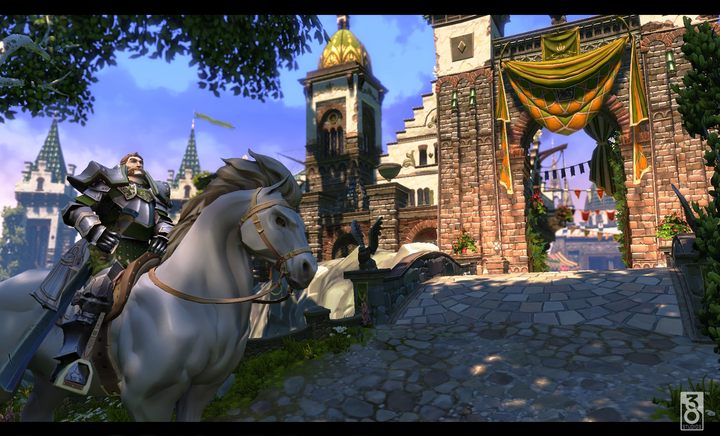Project Copernicus. 13 games that sunk their dev teams

- Games That Burried Their Dev Teams
- Need for Speed: The Run
- Mafia 3
- The original Diablo 3
- LawBreakers and Radical Heights
- Gigantic
- Vampire: The Masquerade – Bloodlines
- L.A. Noire in our encyclopedia
- Fable Legends
- WildStar
- Might & Magic: Heroes 6
- Halo Wars
- Project Copernicus
Project Copernicus

The name Project Copernicus probably doesn't mean anything to you, but when we mention Kingdoms of Amalur: Reckoning, you will surely know what's going on. The above-mentioned RPG was supposed to lay the ground for the dream MMORPG of a professional baseball player – Curt Schilling. In 2006, the gentleman decided to switch to game dev and even founded his own studio – called 38 Studios. He managed to employ a fantasy writer, RA Salvatore, as well as the artist Todd McFarlane. This team wanted to conquer the world, and ultimately ran into multi-million dollar debts.
It turns out that money alone was not enough to dethrone World of Warcraft. Famous names such as Travis McGeathy (EverQuest's lead designer ), a large team (over 60 employees) or the acquisition of Big Huge Games studio were good support, but if the budget is poorly managed and there is no real plan, you're simply asking for a failure. The lack of experience was another factor playing against the studio, as did hiring friends and acquaintances, who weren't necessarily qualified for a given job.
Curt Schilling, however, stubbornly pursued his dream, and the funds slowly began to run out. So, he got rubbed shoulders with the governor of Rhode Island and eventually got the money on the condition that he moved the studio to that fine state, as to provide additional jobs for local residents. Thanks to this, in 2012, instead of Project Copernicus, we at least got Kingdoms of Amalur: Reckoning. The team used materials created for the MMORPG and made them into something playable; supposedly the foundation for the main game. Unfortunately, this was not a spectacular success, and it didn't even return the investment.
Project Copernicus, on the other hand, was still in an advanced technical alpha, and the studio was slipping into ever-increasing debts, which at one point exceeded $100 million. Eventually, bankruptcy was announced and Project Copernicus was officially abandoned, and Kingdoms of Amalur: Reckoning is a kind of memento after that. It's also a lesson for developers that ambitions alone are not enough to create a MMORPG.









